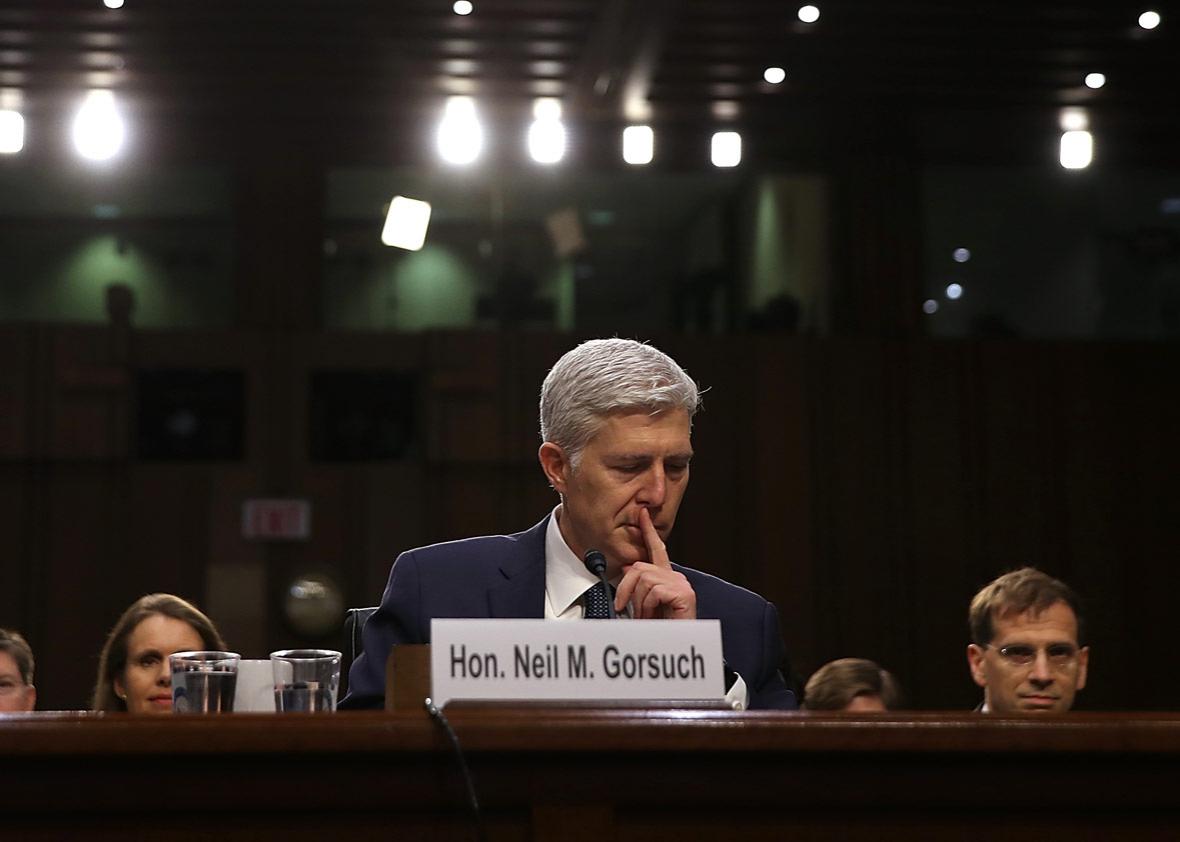Sen. Chuck Grassley, R-Iowa, opened Judge Neil Gorsuch’s confirmation hearing this week by telling Gorsuch that he “can’t answer” questions about whether prior Supreme Court cases were correctly decided. So far, Gorsuch has obliged the senator by saying little more about the court’s past precedents other than that they are, indeed, precedents.
Sen. Grassley is mistaken. Judge Gorsuch can, and should, answer these questions.
There are many things Supreme Court nominees refuse to talk about at their confirmation hearings. They won’t talk about pending cases, rarely give opinions about current constitutional controversies, and say as little as possible about Roe v. Wade. This reticence can be about self-preservation (in the case of Roe v. Wade) or the nominee’s perception of judicial propriety (in the case of pending cases and current controversies). That can create an impression that nominees say nothing of consequence at the hearings and that the whole thing is just an exercise in avoiding gaffes.
But nominees do answer questions about past Supreme Court decisions. Indeed, they have in the past. And Gorsuch should too.
Two comprehensive studies, each carefully reviewing what actually happens at confirmation hearings, have found that nominees routinely give meaningful answers to questions about important cases. These studies show that the confirmation hearings function as a forum in which nominees are expected to agree with the current constitutional consensus, even as they dodge questions about more contested issues. For our most recent nominees, that has included opining on many of the specific cases Sen. Grassley mentioned this week, including District of Columbia v. Heller, Gideon v. Wainwright, and Griswold v. Connecticut.
Justice Sonia Sotomayor’s discussion of Heller during her hearing is a good example. Heller established that the Second Amendment protects an individual right to bear arms. The case was controversial but taps into a belief held by a majority of Americans that this is something our Constitution protects. Sotomayor was the first nominee to appear before the Senate Judiciary Committee after Heller was decided. In the face of the questions from both Democratic and Republican senators, she repeatedly praised the decision. “I understand how important the right to bear arms is to many, many Americans,” she said. “In fact, one of my godchildren is a member of the NRA, and I have friends who hunt. I understand the individual right fully that the Supreme Court recognized in Heller.” When asked by Sen. Jon Kyl, R-Ariz., whether she considered herself bound by Heller, Sotomayor said, “Absolutely.” (She may not have lived up to that affirmation, but that’s a different story.)
What did Gorsuch say? “It is a precedent of the United States Supreme Court and as a good judge you don’t approach that question anew as if it had never been decided.”
The contrast is even starker when we compare Gorsuch with his more conservative predecessors. Justice Anthony Kennedy spoke glowingly of Gideon v. Wainwright and also affirmed a startlingly expansive view of fundamental privacy rights—the rights protected in Griswold. Justice Clarence Thomas said “yes” when asked whether the right to marital and family privacy was a fundamental liberty protected by the Constitution. Then he went even further, stating that he had “no quarrel” with Griswold. Chief Justice John Roberts and Justice Samuel Alito, testifying—like Gorsuch—before friendly, Republican-led Senates, did the same. Alito specifically denounced the narrow view of privacy rights that had gotten Judge Robert Bork into trouble and stated that Griswold had been correctly decided. Roberts affirmed that privacy is part of the liberty interest protected by the Due Process Clause and, like Alito, said that he accepted the court’s decision in Griswold.
These affirmations, made repeatedly and consistently by prior nominees, are important. They reassure the Senate and the country that the person who wants to sit on the Supreme Court accepts that the results in these once-controversial cases have entered into our constitutional mainstream and are no longer up for debate. Married people can’t be denied the right to use birth control. Criminal defendants have a right to an attorney. And people have a right to bear arms.
If Judge Gorsuch agrees with these statements, he should say so. And if he doesn’t, well, he should say that too.
